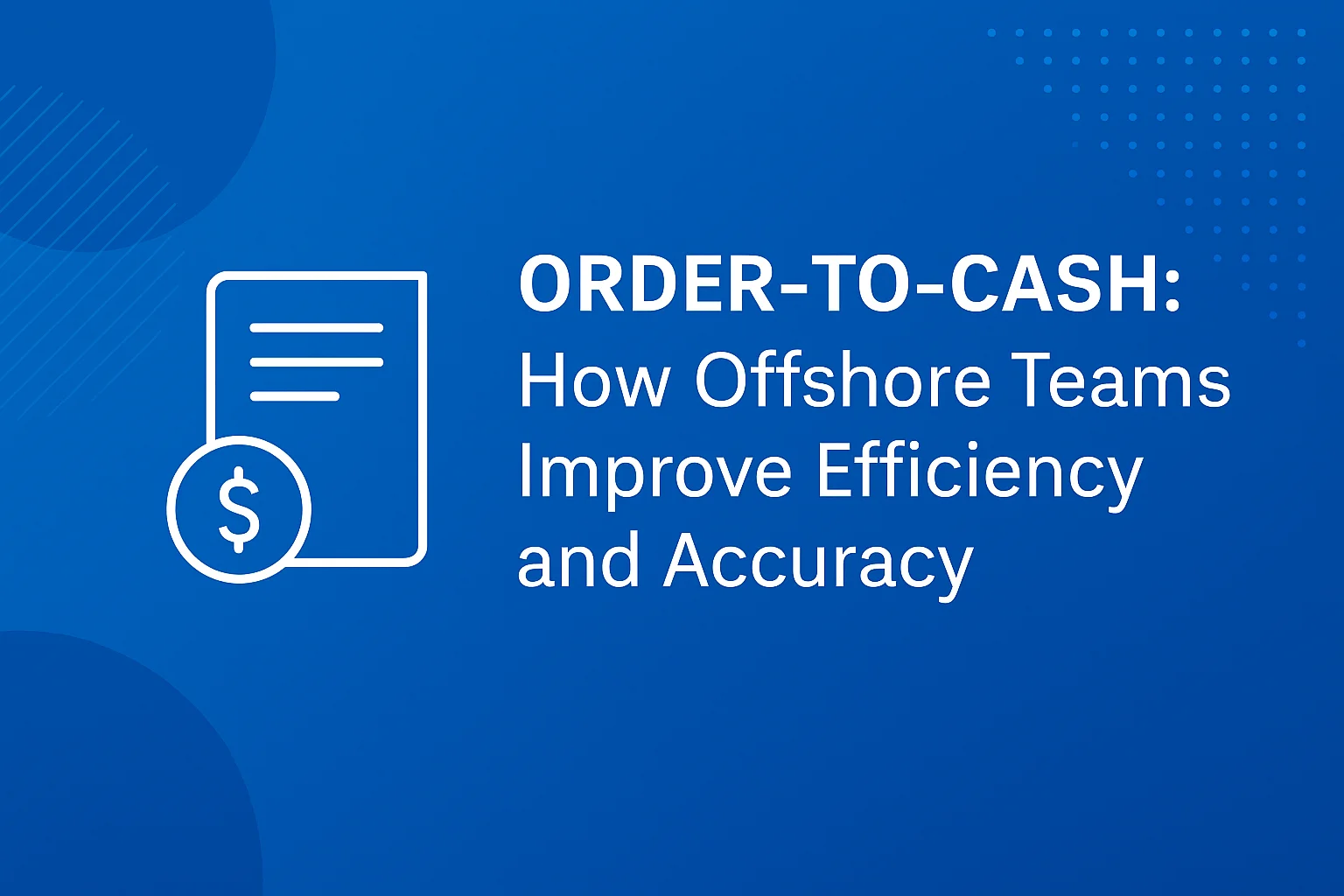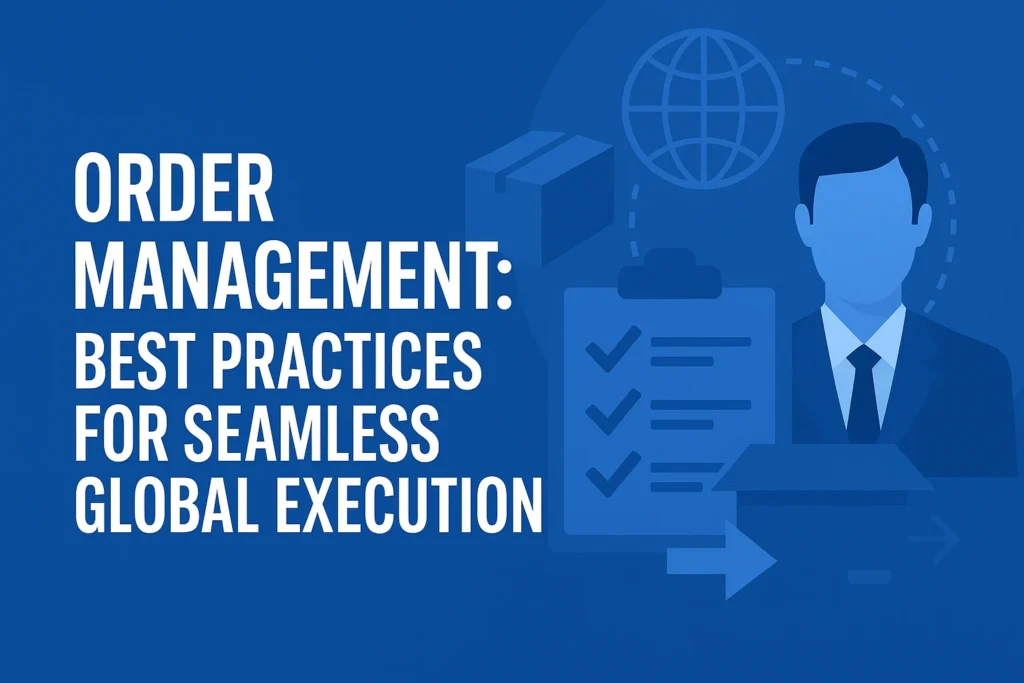The Order-to-Cash (O2C) cycle is at the heart of every business’s revenue engine. From receiving a customer order to recognizing revenue and collecting payment, this process touches multiple departments and directly impacts cash flow, customer experience, and profitability. Yet, many organizations struggle with inefficiencies—delayed invoicing, errors in order entry, high dispute rates, and slow collections.
Building additional in-house capacity is often expensive and time-consuming. That’s why many companies are leveraging offshore execution teams to handle O2C functions with greater efficiency, speed, and accuracy. In this blog, we explore how offshore teams transform O2C performance and enable businesses to scale operations without sacrificing quality.
1. Shorten Cycle Times with Dedicated Offshore Support
A sluggish O2C cycle delays revenue recognition and strains working capital. Offshore teams bring specialized, dedicated resources who focus exclusively on O2C activities, ensuring every order is processed without delays.
- Faster order validation and entry: Offshore specialists ensure purchase orders are accurately captured and confirmed, reducing time-to-invoice.
- Prompt invoice generation: With round-the-clock support across time zones, invoices are sent out faster, improving payment timelines.
- Quick payment posting: Offshore teams ensure customer payments are applied promptly, avoiding reconciliation backlogs.
By leveraging offshore support, companies can accelerate the order-to-payment timeline by up to 30–40%, directly improving cash flow.
2. Reduce Errors with Standardization and Quality Checks
Manual errors in order entry, pricing, invoicing, or payment application lead to disputes, delays, and even lost revenue. Offshore teams use documented Standard Operating Procedures (SOPs) and multi-level quality control to minimize mistakes.
- Standardized order templates ensure consistent data capture across regions and teams.
- Pre-invoice audits verify pricing, discounts, and tax calculations before client submission.
- Dual-layer payment posting reviews prevent misapplications that create reconciliation headaches.
The result is a dramatic reduction in error rates, leading to fewer customer disputes and a smoother revenue cycle.
3. Improve Customer Experience and Retention
Your customers judge your reliability by how accurately and promptly you handle their orders and invoices. Offshore teams enhance the customer experience by:
- Ensuring timely order confirmations and status updates.
- Maintaining transparent communication on delivery schedules and payments.
- Handling inquiries, disputes, and payment clarifications promptly.
A seamless O2C process reduces friction, builds trust, and increases repeat business—key drivers of long-term growth.
4. Access 24/7 Productivity and Global Expertise
One of the biggest advantages of offshore teams is round-the-clock operations. While your onshore team rests, your offshore team continues processing orders, reconciling payments, and preparing reports.
- Time zone advantage: Enables “follow-the-sun” support for global clients.
- Specialized skills: Offshore professionals bring experience across diverse industries and ERP platforms (SAP, Oracle, NetSuite, QuickBooks).
- Scalable workforce: Easily add more offshore resources during seasonal spikes without permanent headcount costs.
This agility ensures you’re never constrained by in-house capacity limits, even during peak demand periods.
5. Strengthen Cash Flow and Working Capital Management
Ultimately, O2C efficiency translates into healthier cash flow and improved financial stability. Offshore support teams help by:
- Reducing Days Sales Outstanding (DSO) through timely invoicing and collections follow-up.
- Minimizing unallocated cash and unapplied payments that distort reporting.
- Accelerating dispute resolution, ensuring funds are released faster.
6. Enable Strategic Focus for Onshore Teams
By outsourcing repetitive O2C tasks, your onshore finance team can shift focus to higher-value activities:
- Designing better credit and collection policies.
- Strengthening client relationships and sales enablement.
- Performing in-depth cash flow forecasting and risk management.
This strategic focus drives profitability and positions your business for sustainable growth.
Key Takeaway
The Order-to-Cash process is too critical to leave vulnerable to delays and errors. Offshore teams bring specialization, scalability, and cost efficiency, transforming O2C into a fast, accurate, and customer-centric engine that fuels your bottom line.
By leveraging offshore execution support, businesses can shorten cycle times, reduce disputes, improve cash flow, and free local teams for strategic finance work—all without increasing overhead.



